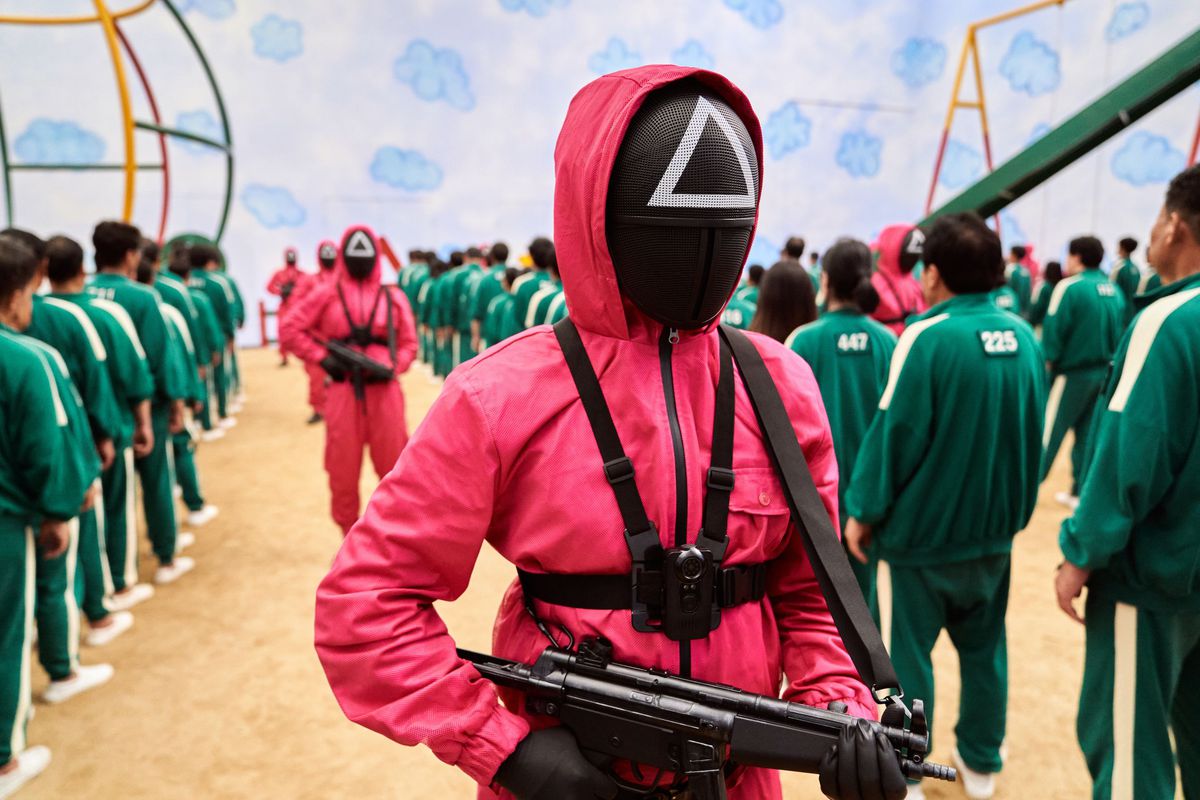On Tuesday, Netflix announced that, in addition to a second season of Squid Game, it will produce a real-life competition based on the massively popular Korean series that will see competitors attempting to win the biggest cash prize in reality-TV history.
Of course, no one will be fighting to the death in this version, but Squid Game: The Challenge will see 456 people competing to win $4.56 million by participating in games inspired by the show as well as new events over the course of 10 episodes. There’s no word yet on when the show is expected to premiere, but it’s currently casting English-speaking competitors from across the globe to film sometime in “early 2023.”
But anyone who actually watched Squid Game should understand that the deadly game at the center of it was never intended to be celebrated. The show sends a harrowing message about class, the ways the poor are exploited by the ultra-wealthy and the desperate lengths people will go to in an attempt to escape a life of poverty. The participants on Squid Game were willing to debase themselves, stab each other in the backs — sacrificing friends, allies and (spoiler alert) in one memorable case, a spouse — and of course risk their lives for a one-in-456 chance at winning some life-changing money, all while anonymous rich VIPs gawked at them for their own entertainment. Even when we remove death from the equation, why is that something we’d want to replicate in real life?
The truth is, even though no one’s being gunned down by a giant doll, most reality shows are exploitative. Cast members are drawn in by the prospect of winning massive sums of money — or, in this day and age, earning their 15 minutes of fame on the show and then parlaying that into a lucrative career as a social media influencer. They’re often plied with free booze and given unflattering edits meant to stir up drama, and the effects can often be damaging to their personal lives and their mental health. As Susie Meister, a former cast member on MTV’s The Challenge, told InsideHook, “They get reduced to this really terrible version of themselves. And then they can’t get work or have good relationships, et cetera. The producers have an agenda to generate revenue and create something that a lot of people want to watch. That does not always make for a healthy environment for a cast member.”
It does, of course, make for entertaining television, and that’s why companies like MTV or Netflix — which, it must be noted, is desperate to bounce back financially after some massive losses in Q1 — keep sacrificing the dignity and mental well-being of the people they cast on their reality shows. Netflix wouldn’t give someone $4.56 million for winning Squid Game: The Challenge unless they were convinced they could make significantly more than that by allowing us all to anonymously leer at 456 desperate people fighting for money and attention. They know exactly what they’re doing, and it has nothing to do with the intended message of Squid Game.
Thanks for reading InsideHook. Sign up for our daily newsletter and be in the know.

















